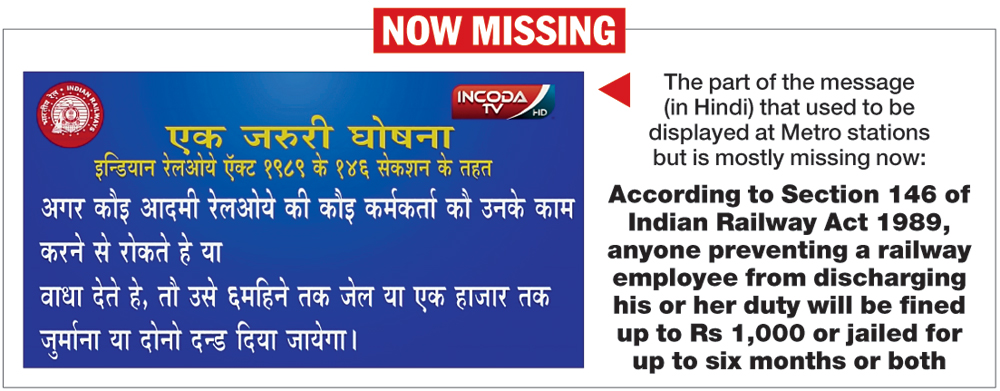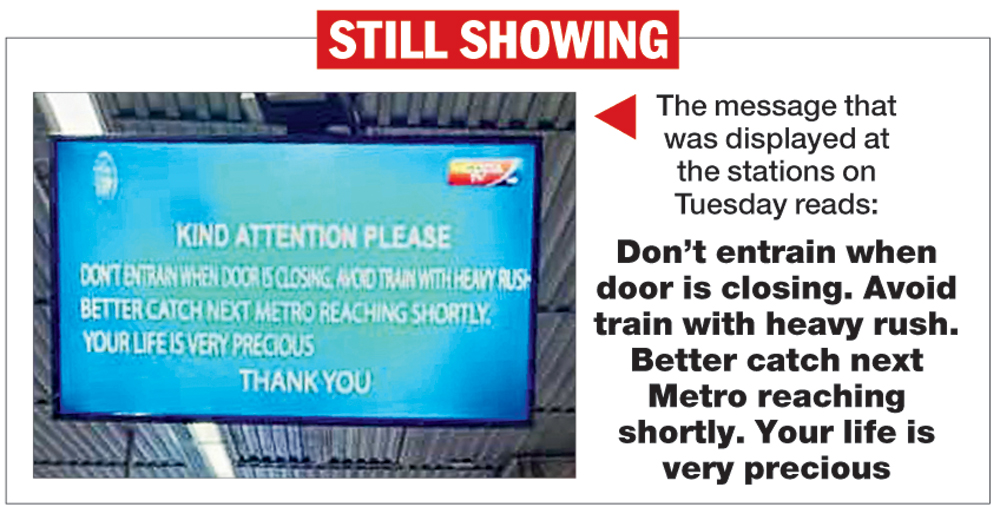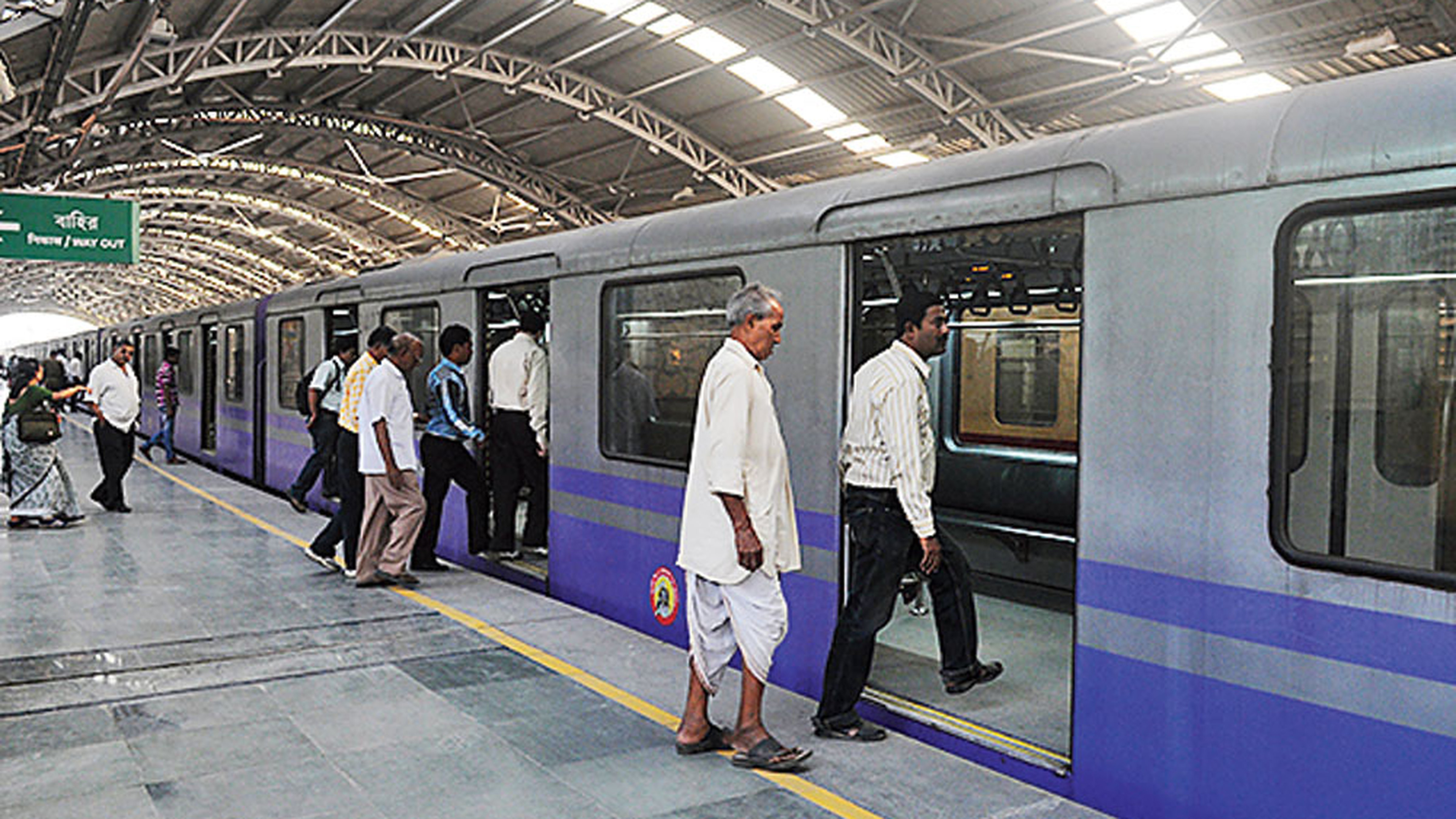The death of Sajal Kumar Kanjilal had prompted Metro Railway to warn passengers that they would be penalised for trying to prise open closing doors to board a train.
Barely 10 days after the fatal accident, the stern tone of the message is gone and what remains is an advisory.
From July 17, four days after Kanjilal was dragged to a gruesome death after his hand got stuck between closing door flaps of an air-conditioned train at Park Street station, passengers were being warned over the public address system that any attempt at prising open closing doors would lead to a fine of up to Rs 1,000 and/or jail for up to six months.
In the absence of a specific provision to act against those indulging in such acts, Metro had invoked Section 146 of the Railways Act 1989 to penalise such offenders on the ground that they were guilty of preventing a railway employee from discharging his or her duty.
The audio-visual message that was being displayed on the platforms first showed the provision for the penalty under the act and then advised passengers not to entrain when doors were closing.
Since Sunday, the slide on the penalty seems to have gone off the display. The advisory remains.
Around 2.45pm on Tuesday, an AC train was about to leave Mahatma Gandhi Road station. Two passengers made an unsuccessful last-ditch attempt to board the train, lunging at the closing doors of a compartment in the middle.

The Telegraph
The platform was not that crowded and the coach was visible from one end of the platform where an RPF jawan was stationed. The jawan stayed put.
Employees of at least three stations told The Telegraph that they had been asked “not to rush” in fining passengers for trying to prise open closing doors.
“After the July 18 incident (a man was fined Rs 1,000 for sitting on stairs at Mahatma Gandhi Road station), we were asked to consult a senior official before fining any passenger under Section 146 of the Railways Act. A section of officials thinks such a huge fine can backfire and lead to protests by passengers,” a station superintendent said.
Another station superintendent said he had asked RPF jawans only to threaten passengers with fine. “I won’t take the decision to actually fine a commuter. I will call up my senior and seek his or her consent,” the official said.
Metro officials denied that the staff had been asked to go soft on the fine. “I am not aware of any such message to the station staff,” Metro spokesperson Indrani Banerjee said.

The Telegraph
Why has the first part of the message gone off display? Banerjee said: “It is still being shown but occasionally. We will keep showing it in the coming days.”
Another official said: “There was no question of going soft on the penalty. I don’t know what is stopping station staff from imposing the fine.”
RPF shortfall
The shortage of RPF jawans is a stumbling block in preventing last-ditch attempts to board a train, an official said. “The sanctioned strength of RPF jawans for Metro stations is 900. But there are a little over 750 jawans,” the official said.
During the evening rush hours on Tuesday, a New Garia-bound AC train entering Chandni Chowk station had scores of passengers waiting outside almost every compartment. The moment the train stopped, the familiar jostling for an inch of space inside started, preventing people from getting off.
A lone RPF jawan at one end of the platform watched helplessly.
A jawan is usually posted at each end of a platform. The Metro platforms are around 180m in length. “During rush hours or when two trains arrive simultaneously, it becomes impossible for one jawan to keep an eye on the entire stretch,” an official said.
The commissioner of railway safety (Metro circle), who is probing the July 13 accident that led to Kanjilal’s death, has called for additional deployment of RPF jawans on the platforms.
At Park Street station, additional RPF personnel have already been deployed in the middle of the platforms.
“We will have to fill the vacancies. We are trying to identify some key spots where additional men can be deployed,” an official said.











